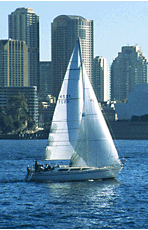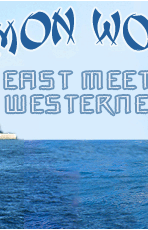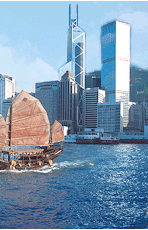When is the SCMP's webpage supposed to be updated? I thought that was already supposed to have occurred by now?
Posted by Paul at May 5, 2007 02:54 PM
hi my name is naji ..iam lebanese lives in mexico..i have been in china and macau before ..and hong kong as well..and now iam in mexico visiting my parents..i love hong kong and macau a lot and iam planning to go there now...just i wanna ask u some thing..and a favour at the same time..is it possible to find a job over there..or u can help me to find one..or u can reach me to agency or some thing like that..hope to hear from u soon..thank u very mush.
Posted by naji nabih alkontar at May 7, 2007 10:41 AM
Hi man! Your site is cool! Please visit my homepage:
Posted by Cathy at May 11, 2007 05:05 PM
Your site looks great! Please visit my homepage too:
Posted by Coble at May 11, 2007 05:05 PM
I just want to say thank you for taking the time & effort for put this web page together! Would you please also visit my homepage?
Posted by Helen at May 11, 2007 05:05 PM
Hi people! Great job! Visit my sites, please:
Posted by Rose at May 11, 2007 05:05 PM
Hi! Good Site! Keep Doing That! Please visit my homepage:
Posted by Chapman at May 11, 2007 05:06 PM
First time here on your site. I am delighted to find your wonderful website online. Please visit my homepage:
Posted by Kathy at May 11, 2007 05:06 PM
Hi! Your site is very nice! Please visit my homepage:
Posted by Cathy at May 11, 2007 05:06 PM
I really enjoyed this page. I will be linking and I will be trying to read and research all that there is to offer from this site! Visit my sites, please:
Posted by Franklin at May 15, 2007 03:29 AM
Very well! Your site is neat! Please visit my site too:
Posted by Jeff at May 15, 2007 03:30 AM
Exelent! Good work! Would you please also visit my homepage?
Posted by Marsha at May 15, 2007 03:30 AM
Really nice and interesting website. Thank you a lot! Please visit my homepage:
Posted by Steve at May 15, 2007 03:30 AM
First time here on your site. I am delighted to find your wonderful website online. Please visit my homepage too:
affordable health insurance online college degrees home mortgage payday loans rolex replica health insurance online casino gambling mortgage loans credit scores best online casinos fast cash home equity loans debt relief refinance mortgage poker games
Posted by Johnie at May 16, 2007 11:14 AM
Thanks bro! Real good work! Please visit my homepage too:
debt settlement credit card debt debt elimination insurance quotes online gambling replica watches forex trading mortgage rates mortgage leads life insurance unsecured personal loans credit counseling mortgage broker bad credit personal loans health insurance quotes
Posted by Jeff at May 16, 2007 11:15 AM
Good site, nice design! Please visit my homepage too:
insurance quotes unsecured personal loans debt settlement online casino gambling auto loan calculator car insurance quotes fast cash cash advance home based internet businesses debt consolidation automobile insurance forex trading auto insurance quotes debt relief cheap car insurance
Posted by Sharon at May 16, 2007 03:49 PM
I liked this site, it's neat. Good job! Please visit my homepage too:
replica watches affordable health insurance homeowners insurance auto loans credit card debt refinance mortgage student loan consolidation debt counseling debt consolidation loans bad credit personal loans rolex replica mortgage leads personal loans cheapest airfares diet pills
Posted by Elisa at May 16, 2007 03:50 PM
Great site. Keep doing. cheap ephedra ephedra diet pills valium buy valium buy valium online order valium discount valium cheap valium valium no prescription valium without prescription valium free shipping Good-bye!
Posted by Hairston at May 18, 2007 04:30 PM
wcg6dhxqd http://www.247555.com/871823.html kj329rpv5145wp
Posted by 4e6o4txqxf at May 21, 2007 12:18 AM
Hi! Your site is very nice! Would you please also visit my homepage?
consolidation debt credit card debt credit card debt consolidation credit counseling debt consolidation debt consolidation loan debt consolidation service debt reduction debt relief debt solution discount auto insurance fast cash advance free debt consolidation health insurance quotes home equity line of credit
Posted by Thomas at May 25, 2007 04:47 PM
Hi there! Your site is cool, indeed! Please visit my site too:
eliminate credit card debt insurance quote term life insurance bad credit mortgage loans for bad credit mortgage refinance casino gambling cash advance loans online slots debt relief home mortgage debt settlement debt consolidation loans credit card consolidation consolidate debt bad credit loans online betting bad credit car loan health insurance individual debt solution
Posted by Wallace at May 31, 2007 04:07 PM
Thanks for your great site! Would you please also visit my site?
cheap health insurance student loan debt consolidation pay day loan auto insurance rates health insurance plans bad credit home loans cheap auto insurance refinance mortgage online blackjack forex trading mortgage lenders payday advance best mortgage rates mortgage loan online casino gambling life insurance quotes cash advance term life insurance quote debt consolidation service credit card debt consolidation
Posted by Phillip at May 31, 2007 04:08 PM
« hide
comments
Yes perhaps an upgrade of the old casinos in Macau might actually make for a better product.
It's inevitable that there would be poaching of staff when there is still a requirement that I think about 50% of staff be hired locally, in a city that has a tiny population.
Posted by HK Dave at August 29, 2006 12:56 PM
HKJC is not much better than Ho's clan.
IMO HK should deregulate, or at least award the footbal gambling through open bidding.
Posted by sun bin at August 29, 2006 11:20 PM
« hide
comments
Isn't Macau part of China?
Posted by bobby fletcher at June 1, 2006 09:08 AM
It's a Special Administrative Region, like Hong Kong. It is part of China but works under the "one country, two systems".
Posted by Simon at June 1, 2006 09:55 AM
Its offcourse not U.S and cannot be under Bush's presidency.
Posted by Neil at June 9, 2006 06:55 PM
« hide
comments
Gee...in Chicago all you get for your vote are some new garbage cans.
Posted by mark safranski at September 16, 2005 01:31 PM
Well they are trying to be different.
Posted by Simon at September 16, 2005 03:28 PM
Well, given the huge amount of casino investment into Macau maybe the best we can hope for is that with inflation, vote rigging simply gets too expensive...but then again, the casinos will ensure there's more pork than ever before.
Posted by HK Dave at September 16, 2005 05:23 PM
Maybe they can give out voter cards with each stack of chips won. Good way to get drag the locals in.
Posted by Simon at September 16, 2005 05:30 PM
Not only a good return, but you get to keep your vote for further sales in the future!
Posted by Bromgrev at September 16, 2005 06:49 PM
« hide
comments









